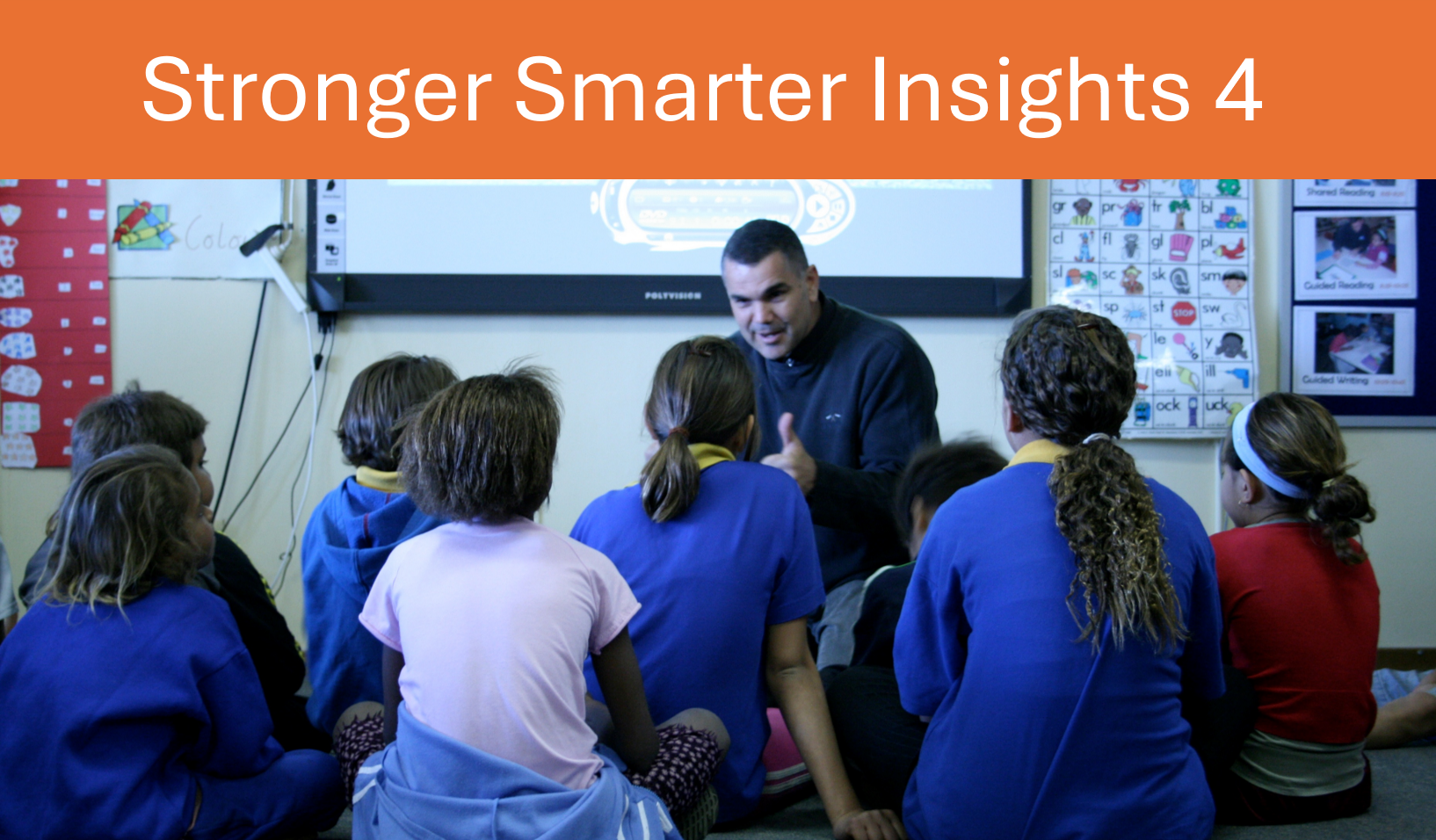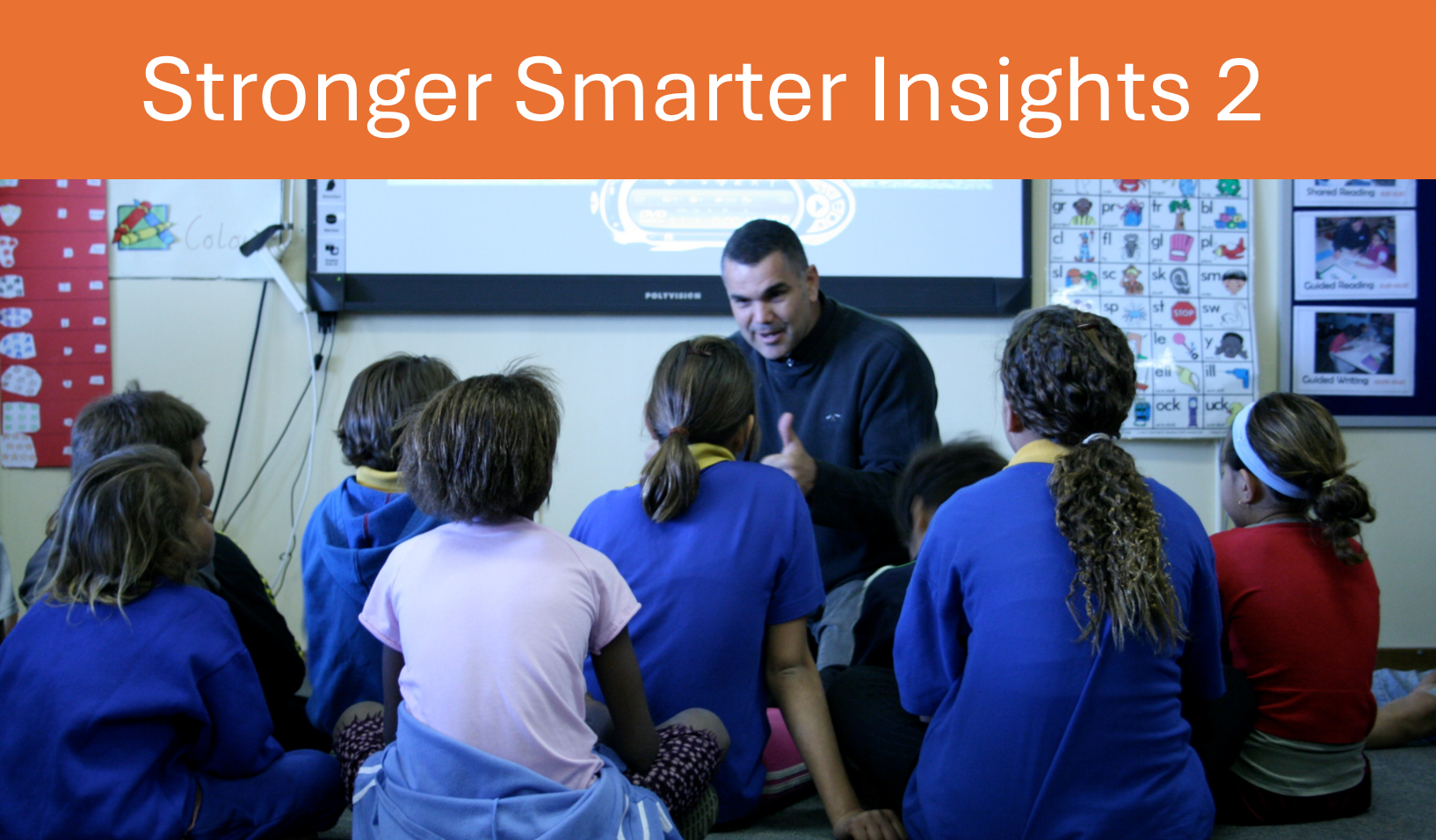
How they make you feel
They will never forget how you made them feel.
In this reflection, we continue to explore themes from Dr Sarra’s writings and speeches, to look at how feelings, especially those formed in childhood, shape identity, relationships, and learning. We draw on a moment from Sarra’s autobiography that reveals the emotional impact of a classroom experience that went wrong, and what it teaches us about the Affective Dimension. The Affective Dimension, one of the three traditional domains of learning, considers how feelings, attitudes, values and motivations can influence a student’s engagement and behaviour.
A childhood memory that never faded
In his autobiography, Sarra recalls a lesson from primary school where the class was learning about the ‘Aborigines.’ He was one of only three Aboriginal students in the room. That moment stayed with him because of how it made him feel.
In our middle primary years I remember sitting in class learning about the ‘Aborigines.’ Me, Simon and Debbie Williams were the only blackfullas in the classroom. …. So here we were learning about The Aborigines – interesting!
‘The Aborigines live in housing shelters called gunyahs!’ All the kids turned to stare at us with a strange look on their faces. It was difficult to know how to respond, especially as we were only about eight or nine years old.
‘For food they eat wild berries from the bush, yams they dig from beneath the ground, and also…snakes and goannas!
“Eeerrgh yuck!’ the other kinds squealed as they screwed up their faces at us, as if saying, ‘What kind of people are you?’
I felt so angry. It was a kind of rage more fierce than I felt when they would tease us and call us skinhead after Mum had done her amateur job of cutting our hair. I wanted to … wipe the smirks well and truly off their faces.
While we have come a long way in our classrooms since then, the film In My Blood It Runs reminds us that we still have a long way to go. The film shows schooling from the viewpoint of a Dujuan, a young Aboriginal student in Alice Springs.
In one scene, Dujuan is taught about Captain Cook ‘discovering’ Australia, and he quietly reacts by saying, “He didn’t discover Australia — he invaded Australia.” Dujuan knows the truth of his people’s history, and he feels the disconnect between what is being taught and what he knows to be true. Again, it shows the emotional impact of curriculum that excludes or misrepresents Indigenous perspectives.
In another part of the film, the teacher talks about The Dreaming in a simplified way that misses the depth and significance of the Dreaming in First Nations culture. This is a missed opportunity where the teacher could have asked Dujuan or other First Nations students to share their knowledge with the class.
What could that lesson have been?
In both cases, the teacher likely didn’t intend harm. However this misrepresentation of Indigenous Australia is clearly harmful. The lesson Sarra experienced was shaped by a colonial mindset that saw Aboriginal people not as equals, but as ‘others’. It reinforced stereotypes instead of building understanding. This mindset continues to obstruct progress in Indigenous education, and it’s something we must consciously reject.
The lessons we would like to see are a celebration of the richness, depth, and resilience of the world’s oldest living culture.
Imagine if the teacher had said:
- “Did you know Aboriginal people have been here for over 70,000 years?”
- “Their culture is the oldest continuous living culture in the world.”
- “Let’s learn about the incredible knowledge systems, art, and philosophies of the First Nations.”
That kind of lesson would have made all students, First Nations and non-Indigenous, feel proud, curious, and connected.
A pedagogy of difference
As Dr Sarra’s story and Dujuan’s experience show, when culture is misrepresented or ignored, the emotional impact can be lasting and harmful. But when culture is honoured, these lessons can affirm identity and leave students feeling proud and connected.
As Gaagudju Elder Big Bill Neidjie reflected in 1986, while archaeologists explored his Country in northern Kakadu:
When that law started?
I don’t know how many thousand years
European say 40, 000 years,
but I reckon myself probably more because…
it is sacred.
This reverence for culture and history is not just about facts, it’s about feeling. It’s about knowing that your story matters.
Charlie Perkins, one of Australia’s most respected Aboriginal leaders, offered this vision of what it would mean for all Australians to embrace this heritage:
“My expectation of a good Australia is when White people would be proud to speak an Aboriginal language, when they realize that Aboriginal culture and all that goes with it… is all part of their heritage. And that’s the most unbelievable thing of all, that it’s all there waiting for us all.”
If this attitude can shape our classrooms, then future generations of First Nations students can be spared the humiliation and rage that comes from being misrepresented or excluded. Instead, all Australian students can feel respect and pride for the richness of the world’s oldest living culture.
What does this mean for us as teachers?
- Challenge colonial narratives – not just in history class, but across the curriculum. Are we telling stories that centre strength, survival, and brilliance? Are we making space for First Nations perspectives in science, art, geography, and English?
- Celebrate Indigenous Knowledges as part of our shared heritage. How can we move beyond tokenistic inclusion and use the curriculum to celebrate the richness and strengths of Australia’s Indigenous Knowledges?
- Think beyond the lesson – how does the whole school make students feel? Every interaction matters. From the front office to the playground, does our school give students messages that they belong, they’re valued, and they’re expected to succeed?
Because long after the lesson is over, students will remember how you made them feel.
Coming Soon: Keep a watch out for our next blog ‘You’re simply the best: Educating desire’.
2026 Program Calendar: Our 2026 Program Calendar is now available.
Stronger Smarter Together: Reimagining Sovereignty: Join us in 2026 as we celebrate 21 years of the Stronger Smarter Institute and imagine an Australia where equity and excellence walk side by side.
7–8 May 2026, Rydges South Bank, Brisbane
This national summit will bring together educators, leaders, and change-makers to explore a new form of sovereignty — one built on respect, courage, and high-expectations relationships.
More information coming soon.
[1] Sarra, C. (2022). Good Morning, Mr Sarra. University of Queensland Press.
[3] Historical Context – Ancient History | Bringing Them Home; Griffiths, B (2018) Deep Time Dreaming
Uncovering Ancient Australia: Black Inc
[4] Ladson-Billings, G. (1995). Toward a Theory of Culturally Relevant Pedagogy. American Educational Research Journal, 32(3), 465–491.
[5] Lewthwaite, B.E., Osborne, B., Lloyd, N., Boon, H., Llewellyn, L., Webber, T., Laffin, G., Harrison, M., Day, C., Kemp, C., & Wills, J. (2015) in Australian Journal of Teacher Education, 40 (5). http://dx.doi.org/10.14221/ajte.2015v40n5.8
[6] Neidjie as cited in Griffiths, 2019, p.346


